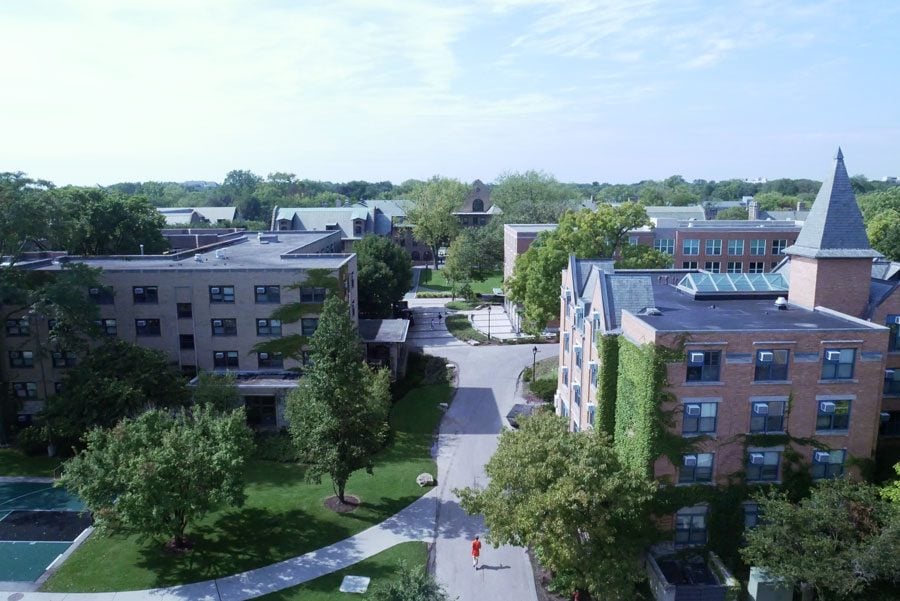Students seek concrete plan for designated low-income and first-generation space on campus
Joshua Irvine/Daily Senior Staffer
A man runs alone through the Northwestern campus, which currently lacks a designated safe space for first-generation and low-income students. Some FGLI students said they would benefit from a student-run center to help strengthen their community.
October 1, 2019
Months after Associated Student Government first introduced a resolution demanding the establishment of a space for first-generation and low-income students, some undergraduate FGLI freshmen said they already feel isolated on campus.
“It’s easy to get lost in the privilege and wealth here and feel like you’re alone,” Meakailyn Phillips said. “I feel like a safe space is much-needed here.”
Phillips, a Communication freshman, is one of many Northwestern students affiliated with QuestBridge, a national organization that connects qualifying students to scholarships at elite universities. Northwestern’s Quest+, a branch of the national QuestBridge organization, represents these scholars and other FGLI students.
University officials announced plans to create a physical space to support FGLI students last week after a group of students from Quest+ and ASG petitioned the administration in February 2019. However, specific timelines for implementation and construction remain unclear.
Meanwhile, as first-years begin to acclimate to Northwestern, FGLI students said that socioeconomic disparities are abundant.
“There’s definitely a financial wall that’s there,” Quest Scholar Andrew Le said. “We’re here, and no one really wants to talk about it.”
The Weinberg freshman said that Northwestern generally provides adequate resources for students who struggle financially, but the administration needs to further publicize available programs.
Student Enrichment Services offers resources to help FGLI students navigate campus and college life. Le used their Books for Cats program, which helped him rent STEM textbooks for free. However, he said he spent nearly $200 on books for humanities classes.
“A lot of offices are hidden all over the place, and I didn’t know how to find them in the first week,” Le said, referring to the SES and Quest+ offices. “A lot of these things aren’t given to you. You have to find them yourself.”
During Wildcat Welcome, Le attended the SES meet-up to review services that Northwestern provides and to socialize with other FGLI students.
Le said the presence of a student-run center could make these resources more accessible and keep the FGLI community alive throughout the year.
“That would be a very good place because sometimes you have problems, and you can’t reach out even to your closest friend,” Le said. “If they’re slightly better off than you, they can’t sympathize with you as well as someone who is in the same spot as you.”
Before school starts, some FGLI students participated in the Bridge or Summer Academic Workshop programs, residencies designed to prepare students for Northwestern academics.
Communication freshman and Quest Scholar Amya Scott attended the Bridge program over the summer. She said the diverse population at Bridge did not fully reflect the community she found in her first days at Northwestern.
The Northwestern class of 2023 is 54.2 percent white, according to undergraduate admissions. The population is also 20 percent Pell-eligible, and 12.5 percent of students are the first in their families to attend college.
“(At Bridge) you could feel comfortable talking about things because everyone else could share that experience with you,” Scott said. “At Northwestern there’s a lot of rich or white people here, so it’s easy to feel alone.”
Email: [email protected]


